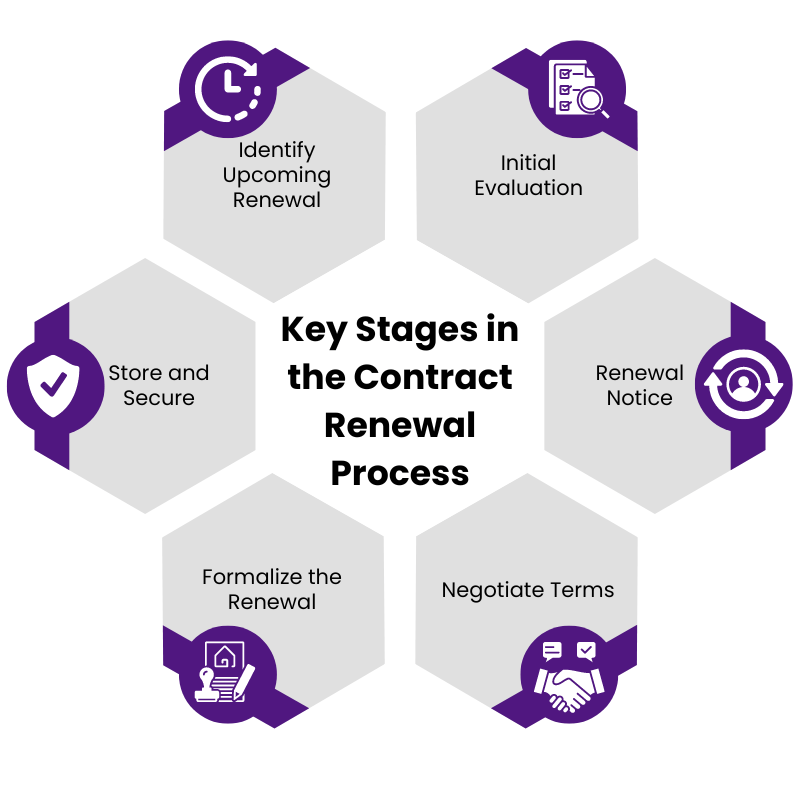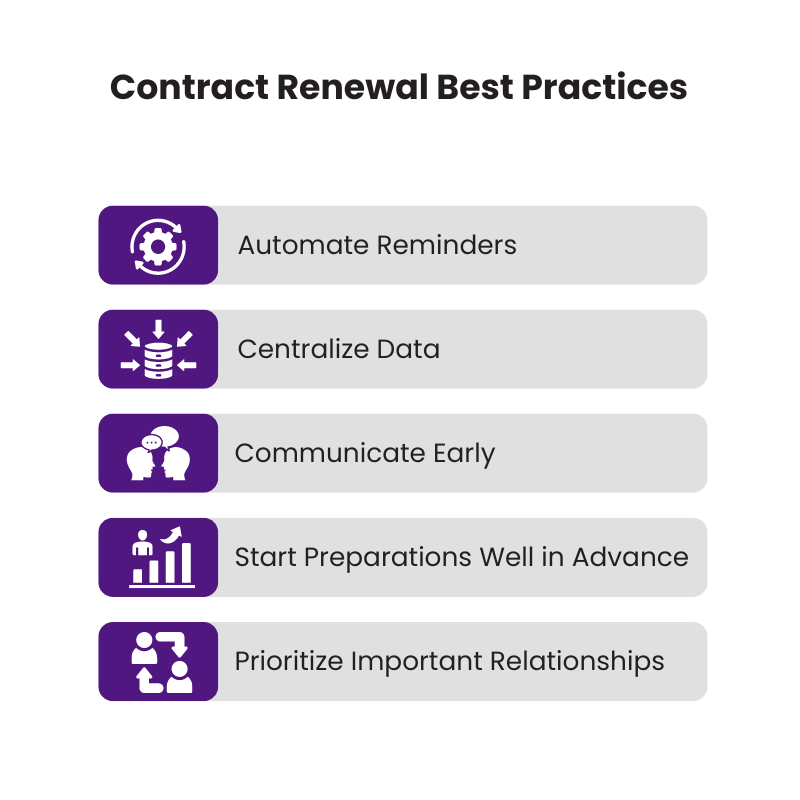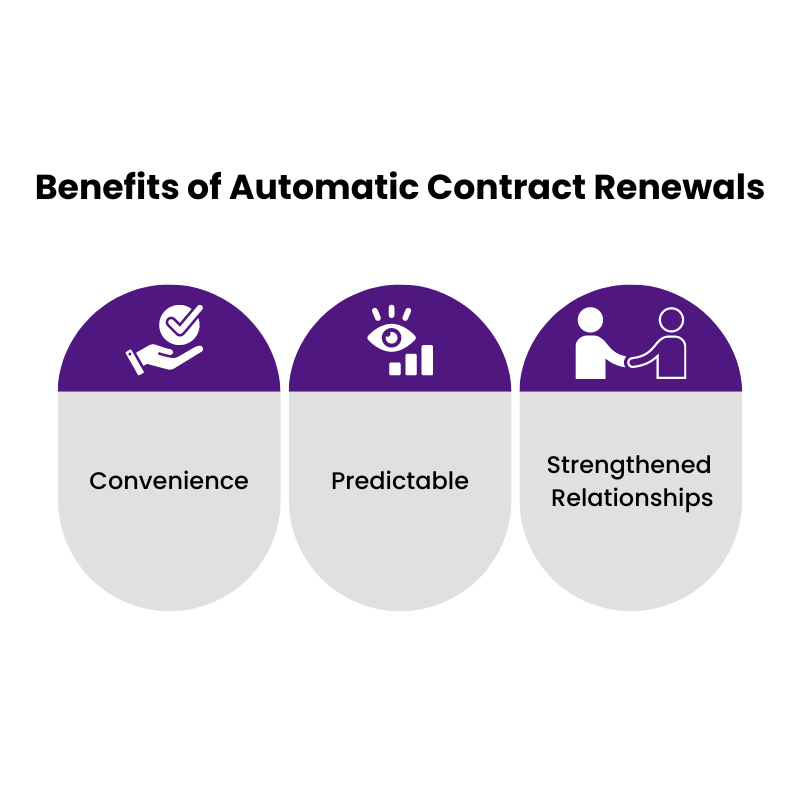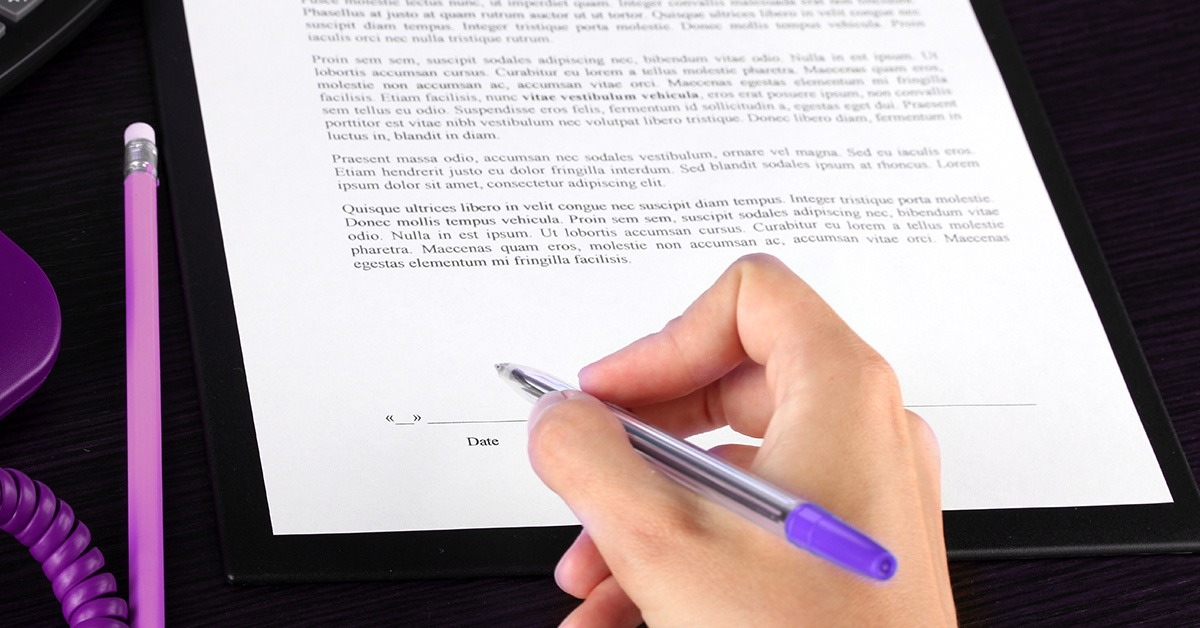What happens when a contract is nearing its end? That’s where contract renewals come in. This process can be as straightforward or complex as your business needs demand.
This guide provides a detailed overview of contract renewals, helps streamline contract renewal processes, and lists the best practices to follow. Let’s dive in!
Navigating the Contract Renewal Process
A contract renewal typically marks the extension of terms between existing parties in a business agreement. It’s a chance to renegotiate terms, adjust pricing, or add and alter services/products based on evolving needs.
While crucial, many organizations find themselves stumbling through renewals with inconsistent processes. This can lead to missed opportunities or unfavorable terms. Understanding the basics is essential.
Key Stages in the Contract Renewal Process

Let’s break down the standard contract renewal process into easy-to-follow steps.
- Identify Upcoming Renewals: Create a system (simple spreadsheet or advanced contract management software) to track key contract data like start and end dates, associated vendors, and renewal options.
- Initial Evaluation: Determine if renewal aligns with your business goals. Are you satisfied with the vendor’s performance and pricing? Have market conditions changed?
- Renewal Notice: Examine your contract for notice periods. Inform all parties of your intention to renew, renegotiate, or terminate, according to agreed timelines.
- Negotiate Terms: If renewing, discuss any potential changes you’d like, including service additions or adjustments, pricing changes, and contract length.
- Formalize the Renewal: Document negotiated terms, create a new contract, or an addendum to the existing one. Ensure all parties sign.
- Store and Secure: Protect the renewed contract in a secure, easily accessible location for future reference.
Contract Renewal Negotiation Strategies

Negotiating during contract renewals is common, especially if you’re seeking better terms. Let’s dive into effective strategies:
- Prioritize Preparation: Gather market data on pricing for comparable services/products. Examine your internal records of vendor or client performance. This establishes a solid foundation for negotiating from a position of knowledge.
- Leverage Your Relationship: Highlight the positive history of collaboration with the other party. Express your desire to continue and emphasize mutual gain. Goodwill can be a powerful tool during negotiations.
- Aim for Win-Win Solutions: Avoid a “take it or leave it” approach. Instead, find creative outcomes that benefit both parties. For example, could a longer contract term secure a discount? Could revised payment terms offer mutual relief?
- Don’t Fear Walking Away: If satisfactory terms cannot be reached despite negotiation, be prepared to walk away. Know your alternatives. Often the act of demonstrating a willingness to end the relationship can spur the other side to reconsider.
- Document Everything: Ensure all agreed-upon changes are reflected in writing and thoroughly reviewed before signing the renewed contract.
Streamlining Your Contract Renewal Process: Best Practices

Here are some contract renewal best practices to improve efficiency and create a positive experience for everyone involved:
- Automate Reminders: Don’t let contract expiration dates sneak up on you! Set automated alerts based on notice periods, allowing time for review, decision-making, and negotiation.
- Centralize Data: A central repository of contracts and key insights facilitates quick decision-making when renewals appear on the horizon.
- Communicate Early: Proactive communication prevents last-minute surprises. Open discussions early with vendors/clients if modifications are desired.
- Start Preparations Well in Advance: Avoid feeling pressured into renewing unfavorable terms because of time constraints.
- Prioritize Important Relationships: Put extra effort into high-value client or vendor contracts to build long-lasting, mutually beneficial partnerships.
Why You Might (or Might Not) Consider Automatic Contract Renewals
Automatic contract renewals (also called evergreen contracts) offer both benefits and drawbacks. They renew without requiring action at the end of the term. Assess if this works for you:
Benefits of Automatic Contract Renewals

- Convenience: No manual process or paperwork.
- Predictable: Lock in pricing for a set period.
- Strengthened Relationships: Demonstrates commitment.
Drawbacks of Automatic Contract Renewals

- Inflexibility: May lead to being stuck with outdated terms or paying higher-than-market rates if prices change.
- Potential for Overlooked Termination: Contracts might renew without you realizing, continuing relationships you’d prefer to end.
Situations Where Automatic Renewals Make Sense
When you have stable needs, a trusted vendor/client, and a fair price for services.
Bottomline
Contract renewals are crucial for maintaining strong business relationships, but an organized approach is vital.
By understanding the process, implementing best practices, and utilizing templates, you can simplify contract renewals. This saves you time, money, and headaches.




